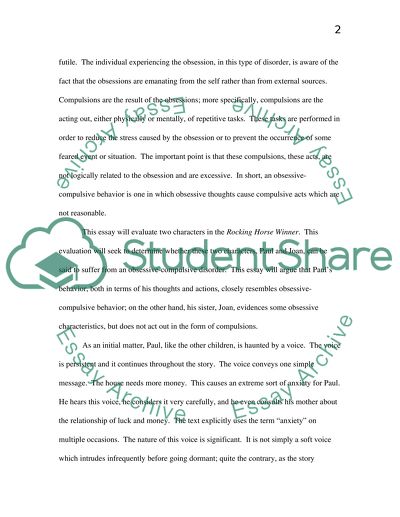Cite this document
(“Speculate on the presence of ObsessiveCompulsive Behavior in the Essay”, n.d.)
Speculate on the presence of ObsessiveCompulsive Behavior in the Essay. Retrieved from https://studentshare.org/miscellaneous/1519470-speculate-on-the-presence-of-obsessivecompulsive-behavior-in-the-personal-makeup-of-two-characters-in-rocking-horse-winner
Speculate on the presence of ObsessiveCompulsive Behavior in the Essay. Retrieved from https://studentshare.org/miscellaneous/1519470-speculate-on-the-presence-of-obsessivecompulsive-behavior-in-the-personal-makeup-of-two-characters-in-rocking-horse-winner
(Speculate on the Presence of ObsessiveCompulsive Behavior in the Essay)
Speculate on the Presence of ObsessiveCompulsive Behavior in the Essay. https://studentshare.org/miscellaneous/1519470-speculate-on-the-presence-of-obsessivecompulsive-behavior-in-the-personal-makeup-of-two-characters-in-rocking-horse-winner.
Speculate on the Presence of ObsessiveCompulsive Behavior in the Essay. https://studentshare.org/miscellaneous/1519470-speculate-on-the-presence-of-obsessivecompulsive-behavior-in-the-personal-makeup-of-two-characters-in-rocking-horse-winner.
“Speculate on the Presence of ObsessiveCompulsive Behavior in the Essay”, n.d. https://studentshare.org/miscellaneous/1519470-speculate-on-the-presence-of-obsessivecompulsive-behavior-in-the-personal-makeup-of-two-characters-in-rocking-horse-winner.


